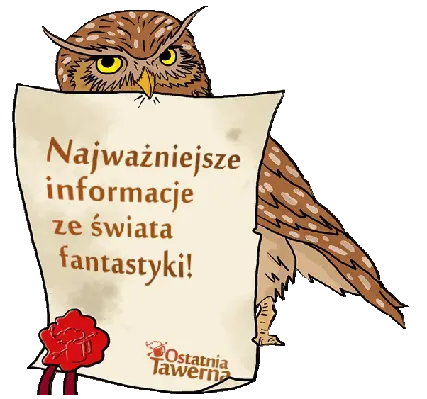Pharmacon heroes
We have three main characters. A naive idealist, Lithuanian Jew Niv Sokol, while looking for a cure for cancer, invents eternin (the authors deserve a prize for the name itself), theoretically allowing them to survive for several hundred years. On his way there is a beautiful (of course), complicated and intelligent woman with class – Daiva Parker. Could it be the alter ego of the authors? A bit disturbing is the fact that at some point a third character named Graham Young makes an appearance. Is it a coincidence that this man is named after the infamous Teacup Poisoner? Who is curious about this character, let him read on Wikipedia … Apparently there are no coincidences in life … In any case, Graham also has some unexplained relationships with Daiva. This man will stop at nothing to achieve his goals.
Action activation
The action takes place in the near future, and the reality is not that different from what we know from television and various websites. The scientist Niv, as a representative of the rapidly dying species of noble scientists who do not chase grants, decides to make his invention with a catchy name available to the general public (instead of becoming a Croesus). This is caused, among others, by a dramatic event that barely escapes alive. It turns out that the two largest companies on the American market will stop at nothing to take over the invention exclusively. The noble gesture of releasing eternin does not improve the situation at all. A complicated game begins with almost everyone taking care of their dirty business. Every situation has a bottom line, until the reader gets dizzy with these connections.
Tastes
I admit that a few scenes and two characters stole my heart. I don’t want to reveal too much about the book’s action, but the supporting character of conspiracy theorist and at the same time a horny celebrity hunter named Nella is a gem. It is a pity that the authors gave her only a small role. The diamond, in turn, is the criminal Yamal – a morbidly obese, dark-skinned Indian. Every sentence (especially its unusual form) and the stories he told directly from the prairies made me smile. Great scenes at the hospital (Niv as a priest and Nella as a nun), at the president’s or at the awards ceremony livened up the action and gave it a slightly absurd color.
Debut like a bazooka shot
Admittedly, this double is a big thing. You can see a lot of work that has gone into these books. It is difficult to comprehend with a simple mind all the issues that have been raised. We have here the intersecting, complex interests of governments, corporations, secret services, reflections on topics that concern many people, such as the meaning of (long) life, religion, the essence of human nature. The text reveals incredible corruption, fraud, and the hideous populism of the rulers. It turns out that conspiracy theories may be true, knights are already extinct, and their survivors can do more harm than good with their (intentionally good) actions.
Is this what our world is leading to? Many books portend the further decline of morals, and this one is no exception. Life can theoretically become almost eternal. However, the inventor of Niv rightly points out that laboratory animals are not humans, and it has not yet been so much time for this fact to be confirmed empirically on the species Homo sapiens. The authors put, inter alia, questions, what is the point of trying, striving for something? It is death that makes life worthwhile. If it becomes so distant in time, how to fill it?
While reading, you can ask yourself many questions that make you feel uncomfortable. Reading is not easy and requires concentration. In both volumes there are many deliberations and discussions that slow down the action a bit. I understand that the authors wanted to include all their reflections on human nature, which in fact remains constantly and invariably selfish and insatiable. However, I could not shake the feeling that a slight shortening of the deliberations while keeping their sense would positively affect the flow of the novel and encourage more people to read who are not necessarily proficient in understanding e.g. biological, chemical and informatic issues (although the explanation of the Casimir effect for laymen is great).
I consider the book to be very good and difficult; its language sounds scientific in many places. The tone at the beginning (long, but engaging introduction!) Is quite light, but as the reading progresses, it becomes more and more serious and heavier in reception. I don’t know how the authors did it, but even the description of torture has a slight absurd flavor. The knowledge that we can assimilate becomes more accessible thanks to the irony and humor displayed on the pages.

